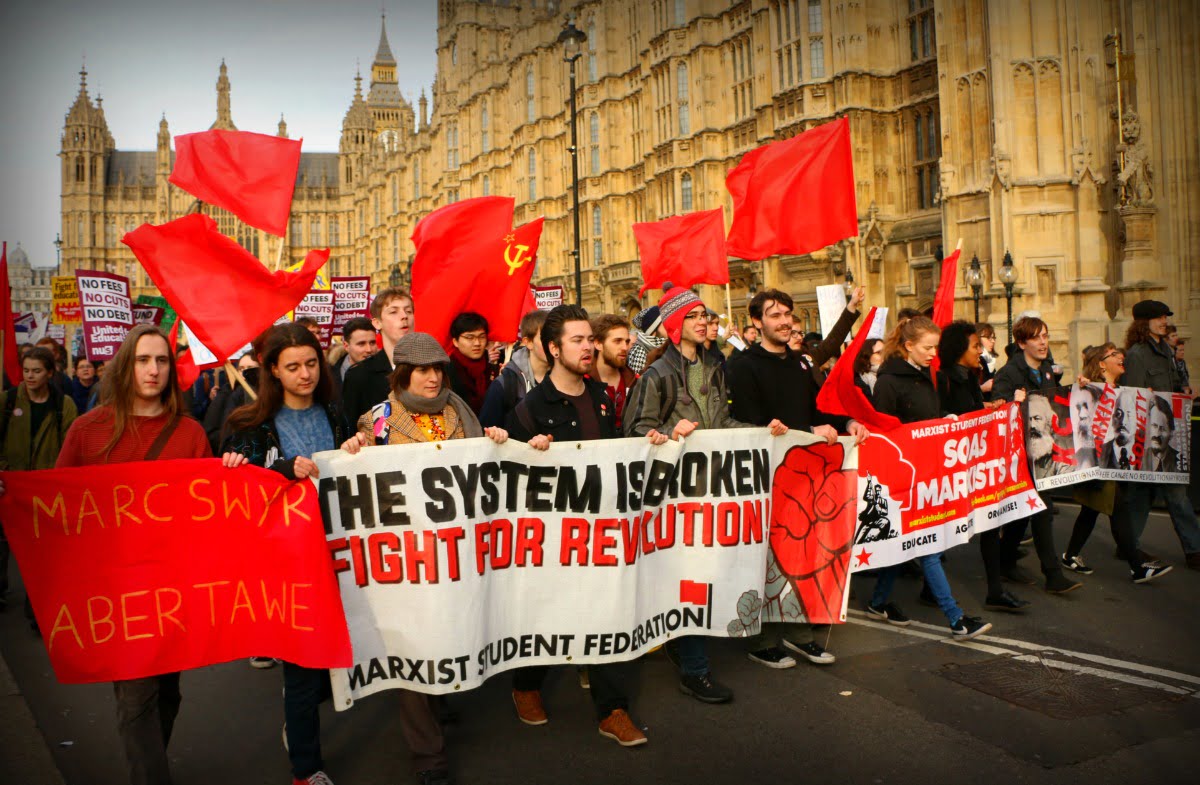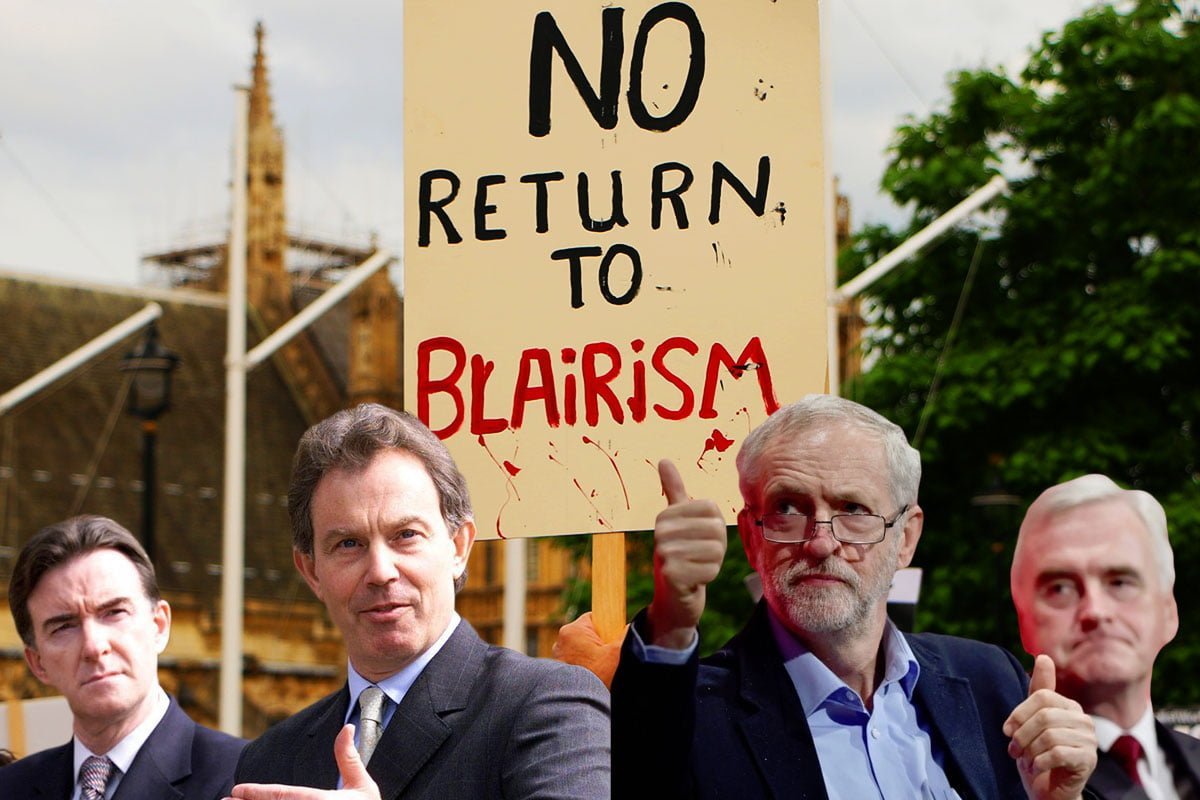We publish here the third part of a Socialist Appeal document on the perspectives for the class struggle in Britain, which was discussed at the recent conference of Socialist Appeal activists and supporters. Although initially written in December last year (and therefore already overtaken in places by new events and developments), the document provides an analysis of the main processes affecting British politics and society, as well as outlining the fundamental contradictions facing the ruling class and leaders of the labour movement.
In this third and final part, we look at the perspectives for the Labour Party. The election – and re-election – of Jeremy Corbyn as Labour leader has begun a process of transformation inside the Labour Party. But the vast majority of the Parliamentary Labour Party and party apparatus remains in the hands of the Blairite right wing, who are determined to regain complete control. The outcome of this civil war inside the party depends, in the final analysis, on the question of leadership.
The Labour civil war
The victory of Jeremy Corbyn in September 2015 and then again in 2016, with a bigger majority, has deeply shaken the establishment. The right-wing “coup” failed as Corbyn won a decisive victory despite an unprecedented campaign in the media. Hundreds of thousands of people joined the Labour Party to vote for him.
The right wing and the bureaucracy – backed by the ruling class – did everything to block Corbyn. Firstly, they tried to keep him off the ballot paper. Then they increased the supporters’ fee from £3 to £25, and chose an early cut-off point for those eligible to vote. Then they purged his supporters, who had been given the smallest window to register. Despite this vicious campaign, Corbyn was victorious, increasing his majority compared to 2015. A huge part in this was played by the mass meetings of Corbyn supporters all over the country.
These victories of 2015 and 2016 have in turn opened up a Pandora’s Box. For the first time in living memory, the right wing are losing control of the Party. Today, membership of the Labour Party is over 600,000, compared with less than 200,000 under Miliband. Incredibly, some 130,000 joined in two weeks.
Under Blair, the Labour Party was purged and pushed dramatically to the right. He hoped to turn the party into a British version of the American Democrats, completely wedded to the capitalist system. But Blair and the right wing failed to break the party’s links with the trade unions and the working class. The victory of Corbyn has shattered this perspective altogether. The talk of Tony Blair returning to politics in Britain has been met with a howl of protest, a reflection of the support for “winning Tony”. It is an indication of how desperate the right wing is at the present time.
The basis of right-wing support is in the Parliamentary Labour Party, where the Blairites have complete domination. They also have support in the Party machine – the bureaucracy built up in the past to dominate the rank and file. The Right also have support in the local parties, mainly concentrated in the councillors and their hangers on.
This layer has been present for decades, living off the proceeds of local government. They have a vested material interest in maintaining their positions. They have become the willing servants of the Tory government in administering the cuts. They refuse to defy the Tories or the law. Of course, in implementing the cuts they want as little fuss as possible. Where there is any danger of this, some councillors stay away from the vote, allowing the cuts to pass in their absence.
This was the case with the 20% council-imposed wage cuts on teaching assistants in Durham. But the struggle of the teaching assistants provoked divisions within the local Labour Party, which showed just how isolated the councillors were. The right wing unashamedly justified their actions, but many members opposed them.
To give the right-wing councillors more backing for their actions, the recent Labour Party conference passed an instruction – instigated by the right wing – to all Labour councillors not to defy the cuts or propose a needs budget on pain of expulsion. This ensures that there will be no resistance from this quarter. This is a far cry from the defiance of Liverpool or the Poplar councillors of the past.
The right wing in the PLP has attempted to oust Corbyn at every opportunity. They have tried everything to destabilise and remove him. They have staged revolt after revolt within the PLP and in the Commons. They have humiliated him whenever they could. Even the services of Cameron and Nick Clegg – true friends of the Labour movement – were conscripted to join the chorus calling on Corbyn to go.
At the centre of the Right’s intrigues is Tom Watson, the deputy leader, who has orchestrated things behind the scenes. Their mass resignation from the shadow cabinet and 80% vote of no confidence in Corbyn, culminating in the attempted coup, forced an election they did not want. They thought he would buckle under pressure, but they were mistaken.
All the old right-wing hacks like Neil Kinnock and Jack Straw were rolled out to denounce Corbyn, who nevertheless stuck to his guns. McCluskey correctly described this as a “political lynching”. In the end the election turned into a farce. Angela Eagle, who had been touted as the challenger, was quickly ditched in favour of Owen Smith, the “unity” candidate.
Smith made great play about how he supported Corbyn’s progressive policies, apart from Trident, but disagreed with his “approach” in running the Party. This irritated many right-wingers, who wanted to challenge Corbyn politically but could find no one who could do it. Once again, the rank and file and the new members in particular rallied to Corbyn and dealt the right a stunning blow. The Right mobilised the “graveyard vote”, while Corbyn won over the new active layers.
The clumsy and arrogant manoeuvres of the right wing even succeeded in alienating most of the trade union leaders, who would have been inclined to some kind of a rotten deal to remove Corbyn. Len McCluskey had originally supported Andy Burnham for leader and Watson for deputy leader. But Watson snubbed the union leaders by cancelling an agreed meeting, which provoked McCluskey to denounce him in public for “sabotage”. This was a fatal mistake. They had pushed the trade union leaders reluctantly behind Corbyn.
The Right was humiliated and demoralised. Some were openly pessimistic. John McTernan, for instance, stated that “the Labour Party is now dead”. 40,000 members have left. However, the majority of MPs will not give up so easily. They are fighting for their political lives. Their determination comes from the backing they receive from the ruling class, whose interests they defend. They feel this power behind them. It gives them strength and confidence. That is why they are more determined than the Lefts, who tend to buckle and compromise, even when they are victorious.
For decades the stability of the political system in Britain depended on two fundamental pillars: the Conservative Party and the Labour Party. The ruling class exercised firm control over the Labour Party through its right wing. Now this situation is being challenged. The ruling class is alarmed and is waging a stubborn struggle to keep control over the Labour Party.
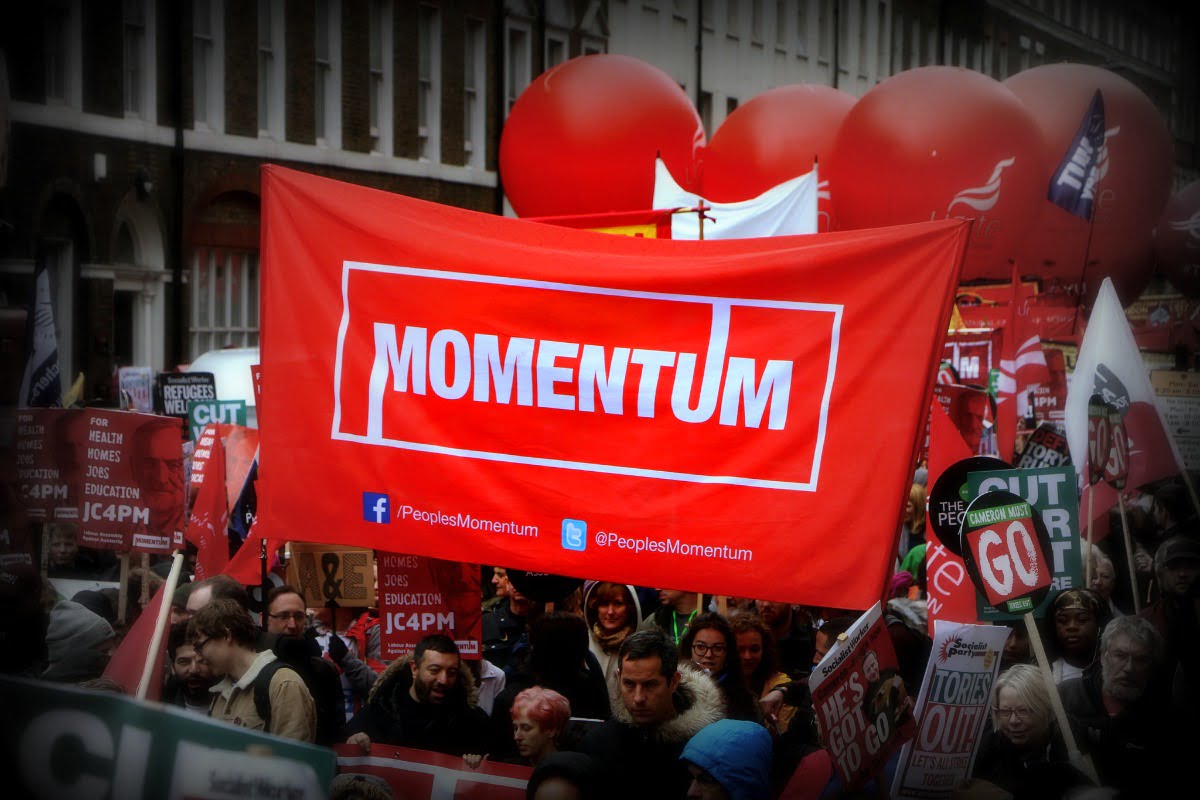
Momentum’s weaknesses
The hundreds of thousands of new party members would be able to defeat the right wing and purge the party. On paper, Unite has come out publicly for mandatory reselection. But this would mean waging a serious struggle against the right wing. The Left leaders are afraid of such a step. They do not have the political will to carry it through. They prefer to compromise and avoid a direct confrontation with the Parliamentary Labour Party, hoping that the Right will reciprocate. But this is a vain hope. On the contrary, weakness invites aggression.
Neither the right wing nor the bourgeoisie trust Corbyn, partly because of his views, but mainly because of what stands behind him. A serious threat is posed by a radicalised rank-and-file that has been mobilised for the struggle against the right wing. The creation of Momentum was a correct move to defend Corbyn within the Party and fight against the sabotage of the right wing. But Momentum has no clear aims. It is organisationally amorphous and politically confused. And its leaders are terrified of engaging in a serious struggle against the right wing.
Labour First, the right-wing grouping, ran rings around the Left in the local parties in the run up to the Labour Party conference. While Momentum wasted precious time on a fringe jamboree outside the conference, the Right organised effectively to get its supporters elected locally as delegates to the conference. The Left were completely out manoeuvred.
As a result, and despite Corbyn’s decisive victory, the Right were able to get two new positions from Scotland and Wales onto the NEC of the party. The Left were forced to retreat on Trident and other issues, to the glee of the right-wing media. Corbyn has big support in the ranks of the trade unions, but two right-wing unions, USDAW and Community, were able to throw their weight around and boast how they were going to block reselection. The Left are flabby by comparison.
The most important task for Momentum is to organise a campaign for reselection, starting with those MPs that supported the no confidence motion in Corbyn. This would galvanise the Left and give some purpose to its efforts. Unfortunately, from day one the Momentum leaders ruled out such a campaign. They were terrified that they would alienate the right wing in the PLP, the very people who were stabbing Corbyn in the back.
Corbyn has said reselection will take place over boundary changes and McDonnell said they would not intervene in local parties’ affairs. All that is very nice, but Momentum needs to start acting in as decisive a manner as the organised Right. Deselection must be at the centre of its activities. This should be linked to the fight for socialist policies, with no attempts to patch up capitalism.
The Momentum leadership remains effectively in the hands of an unelected clique around Jon Lansman. They have been attempting to shut down organisational democracy, removing any accountability of the leadership to the membership. And the Momentum leadership has continually lagged behind events, lying dormant for months. They never lifted their little finger over the mass suspensions. They want to control Momentum from the top with a docile rank and file. They want to create a Corbyn fan club, not a seriously organised Left.
They are therefore keen to adopt the Podemos model of “online” democracy, which undermines the real democracy of an organisation. Participation in Podemos has consistently dropped using such methods. Decisions need to be taken democratically through a delegate conference, and not stitched up through online voting without proper debate. The reason for this is that they fear debate for fear of losing the argument and being in a minority.
The truth is that Momentum now lies in a complete mess, the blame for which rests entirely on the shoulders of the Lansman clique and their bureaucratic actions. Some grassroots Corbyn supporters are continuing to organise locally to fight the cuts and reclaim the Labour Party from the bottom up, but the official Momentum leadership has effectively abandoned this struggle to transform the Party.
Nevertheless, Marxists should continue to campaign inside Momentum to raise the key political questions: the need for mandatory reselection to kick out the Blairites, and for a bold socialist programme to end austerity.
All the attempts of sectarian groups to set up a separate party outside the Labour Party have ended in abject failure. When Corbyn got the nomination in 2015, such people ridiculed his chances. They advised him to stop trying and join them instead. Now they want to affiliate to Labour, if only the right wing would let them! This ridiculous farce fools nobody and merely serves to underline the irrelevance of such sectarian groups in Britain.
An even more pathetic spectacle is presented by those “left” commentators like Mason who have abandoned any idea of socialism and are trying to push all kinds of revisionist notions that only serve to confuse and disorient the few people that bothered to pay any attention to them. At the very time that we need a bold socialist alternative, this former “Marxist” talks about “post-capitalism”, abandoning “utopian dreams” (that is, Marxism) in favour of a “sharing economy” – that is, a return to the dreams of the old pre-Marxist utopians.
Owen Jones, another such “left” commentator, is wallowing in the swamp of pessimism and confusion. “Labour and the Left teeter on the brink of disaster,” Jones warns. “I worry about the Left failing, and even disappearing forever.” He goes on: “it feels like I’m at a party on the edge of a crumbling cliff…all I can see is the cliff. And I’m desperate, at all costs, for us all not to fall off that cliff.” Again: “Many of you won’t thank me now. But what will you say when you see the exit poll at the next general election and Labour is set to be wiped out as a political force?”
These wailings are nothing more than the cries of despair from a sceptic. Jones wanted Corbyn to compromise with the right wing for the sake of “unity”. This supposed “left” confessed that he would have voted for Owen Smith as Labour leader if he had a chance of winning the next election. Such “radical” types as these play a negative role, insofar as they play any role at all. Jones, Mason, and other such cynics and sceptics are trying to get Corbyn to water down his programme – “to appeal to the centre ground” – precisely at a time when radical demands are needed.
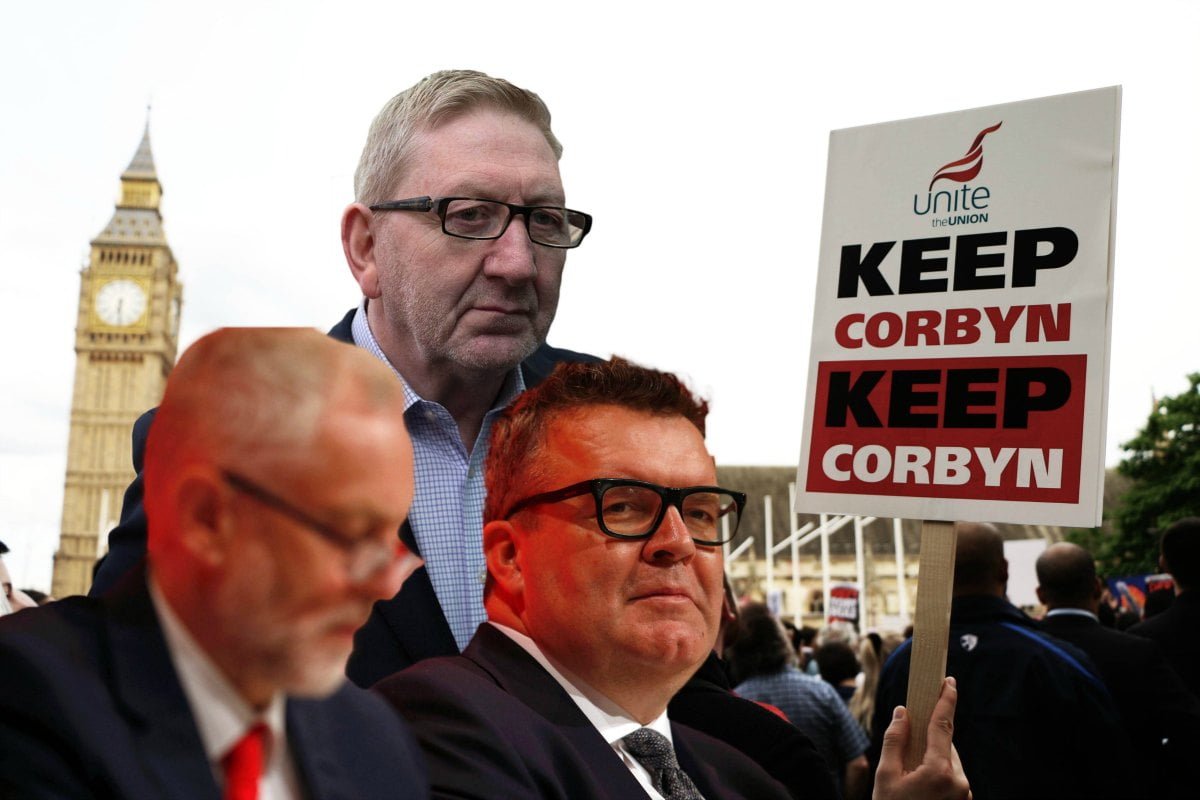
Two Labour Parties
Despite the leadership of Momentum, the rank and file of the party are moving in different areas to take it over and oust the right wing. The latest of such moves has been in Leeds Central, where Hillary Benn is the MP. Here the Left slate took all the positions. The same thing happened in Brighton and Bristol, but the Labour bureaucracy has stepped in, using bureaucratic suspensions.
In Lewisham, the Right still retained its control, but the Left made significant advances. It is clear that the process is mixed and reflects the guerrilla war taking place on the ground. In Garston and Halewood CLP, the party passed overwhelmingly a motion of no confidence in the general secretary, Iain McNicol, who was behind the intrigues against Corbyn and in charge of the “compliance Unit”. Maria Eagle, the MP, voted against. In Caerphilly constituency, the local MP Wayne David, was asked a question by a brand new member after Corbyn had won: “When are you going to resign?”, which was met with disbelief. These are clear signs of the struggles developing within the party.
Significant pockets of right-wing support still exist in many areas. They are fighting a rear-guard action. They will not give up easily. They still control many “rotten boroughs”. In effect, what we have is two Labour Parties, one based on the new members and the other based on the old membership. The latter reflects the past. For instance, while only 31% of older members are in favour of reselection, some 67% of new members support it.
The YouGov poll for voting intentions for Labour leader revealed that support for Corbyn amongst those members who joined before May 2015 was 32%. Those who joined between May and September 2015 showed 72% support for Corbyn, and for those who joined after September 2015, it was 86% support. In a whole number of areas, the new members have come up against the fierce resistance of the right wing, where the MPs and councillors dominate the party. New members are very much discouraged from taking an active and leading role.
Further shocks and sabotage of the Right in Parliament could accelerate a shift to the Left. When Stephen Kinnock MP attacked a single mother with two autistic children in his Aberavon constituency for daring to criticise him, asking what right this uninvolved person had to criticise, she told him bluntly she had previously no time to be involved given her personal situation. But then issued a threatening tweet: “I will certainly find time for you!”
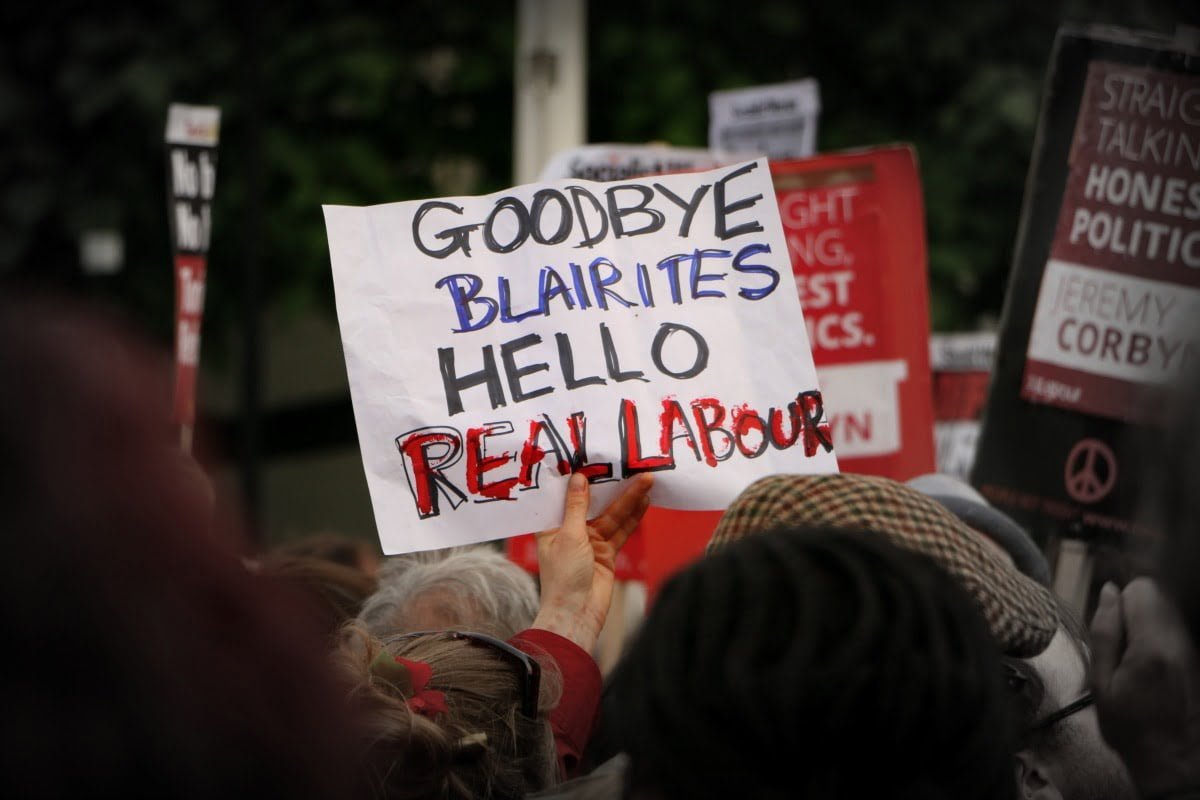
Perspectives for Labour
At the level of the NEC, things are finely balanced between the Right and Corbyn supporters. The gains by the Left in the Constituency Section were bureaucratically cancelled out by the imposition of two right wingers from Wales and Scotland. Sometimes Corbyn wins, and sometimes the Right get their way.
The trade union representatives swing in different directions depending on the issue. Some of the CLP “Lefts”, like Ann Black, are not lefts at all, but right wingers masquerading as lefts. On the NEC, she voted to disenfranchise the new members and to increase the supporters’ registration to £25. At this level, this balance of forces seems to be set for the next year, creating paralysis.
The attempt by the Right to get the Shadow Cabinet elected was countered with a discussion on greater party democracy, but has since been abandoned. This reflects the shifting ground at this level. The Right hope they can hold the line and maintain McNicol and the Labour machine. They have been forced to lift the suspensions, but they have for now maintained the expulsions. This shows how the bureaucracy is prepared to manoeuvre to keep control of the party.
The suspensions and expulsions were part of the “coup” against Corbyn. Socialist Appeal supporters were partially caught up in the purge, shopped in by local right wingers or MPs who felt threatened. The fact that Socialist Appeal activists were ignored by the bureaucracy for 25 years but are now being expelled is no accident. With the guerrilla war in the local parties continuing, further expulsions are likely.
Despite Corbyn’s opposition to expulsions and proscriptions, the balance of forces on the NEC means that such expulsions can occur with little resistance. Originally, the Momentum leaders were fearful for their own position after the attacks on them by Tom Watson and others. Despite this, they were not prepared to oppose the expulsions in any meaningful way. Now they have come to an accommodation with the right wing, therefore ignoring the expulsions.
The present balance of forces within the structures of the Labour Party can change dramatically in the coming period. It will only take one deselection in one area to take place and the whole thing will blow up. Already, Frank Field has traitorously called on anyone deselected to force a by-election and stand against the party. Naturally Field is not subject to discipline or suspension for such scandalous declarations.
A single deselection will cause uproar in the capitalist press. The fragile truce between the Corbynites and the majority of the PLP will be instantly shattered. The right wing will be baying hysterically at every shift to the left, which in turn will inflame the situation and sharpen the struggle between left and right in the local parties even further. It will place on the order of the day the transformation of the Labour Party.
For the time being, instead of splitting away, the right wingers are biding their time. They hide their real intentions and sweetly talk of “loyalty” to the party, while preparing to stab it in the back. They have been told by the strategists of capital to stay for now and fight. There are threats by MPs of a Work to Rule and boycotts of important debates in the House of Commons. The leadership contest in Unite is being fought as a proxy war for control of the Labour party, with the right-wing hoping an anti-Corbyn candidate can unseat McCluskey. This trench warfare, designed to undermine Corbyn, is the preferred tactic of the Right for the time being.
The Tory Party under Mrs May is holding together for the moment. The Brexiteers are in a big majority but there are underlying conflicts and tensions, which at a certain point can also lead to a split. The Brexit negotiations will be very fraught and the outcome remains unclear. It is a ticking time bomb in the foundations of the Tory Party.
The strategists of capital are trying to hold the political centre together. But the fault lines are evident to all. Events can provoke splits in both the Tory Party and the Labour Party, which will lead to a serious political realignment. The precise timing of this process is difficult to predict. It may be that the May government will not last its full term.
Britain has to be out of the EU by the spring of 2019. But there are many stumbling blocks on the way. After all, the Tories only have a small majority. The storms of the coming months and years will shatter this temporary state of affairs. The mood is very volatile. This means that there can be massive swings in one direction or another.
Despite all the claims of Corbyn’s alleged unelectability, there can be a massive shift towards Corbyn and the Labour Party as the reality of a Tory-led Brexit becomes apparent. The serious representatives of Capital know that and they face a dilemma. Either they allow him to come to power and then attempt to discredit him, or else keep him out of government by wrestling back full control of the party or even splitting it.
A split, however, may not be necessary in order for the Labour establishment to regain control. Corbyn missed the golden opportunity following the second leadership election to go on the offensive against his Blairite opponents. Now, due to the timidity, confusion, and compromise of the leadership of the Corbyn movement seen since September, there is a clear possibility that Corbyn could be forced to step aside in favour of a more “electable”, “left” candidate. Prominent figures such as Clive Lewis and Owen Jones are already manoeuvring behind the scenes to achieve such an outcome. Poor showings in by-elections and local elections would further hasten the calls on Corbyn to resign. With many activists in the Corbyn movement demoralised by the lack of conviction from the top, and with Momentum offering no lead, it is possible that Corbyn could be removed this time without a mass grassroots backlash.
Alternatively, at a certain stage, the Blairites could split away and come together with the Lib Dems and disaffected pro-European Tories to form a new Centre party. The strategists of capital are already discussing this possibility: “Many centrist Tories have more in common with their counterparts on the Labour side than with English nationalist Brexiteers; and, likewise, middle-of-the-road Labourites are closer to pro-European Tories than to Mr Corbyn’s brand of 1970s state socialism.” (The Financial Times).
The Lib Dems are fishing around and trying various methods to tempt Blairites into their camp. Paddy Ashdown has launched a ‘non-party-political’ organisation to fund ‘moderate’ MPs across the party divides. This has been named ‘More United’, tellingly after a phrase used by the murdered Labour MP Jo Cox. It is an attempt to appeal to Blairites and to smooth their path out of Labour. Labour Tomorrow, a right wing faction within Labour, has the Lib Dem Lord Matthew Oakeshott for one of its biggest donors. These attempts are premature but are indicative of the coming split.
However, such a development would have far-reaching consequences. What remains of the Tory Party would shift to the right, absorbing the leftovers of UKIP, while the Labour Party would shift to the left, based upon an anti-austerity, anti-capitalist programme. At some point, it is not ruled out that the bourgeoisie could attempt to put together a national government, including the Labour Party right wing.
Again, that would mean splitting the Labour Party, with the Blairites joining such a government. Of course, the bourgeois are reluctant to carry this through, as the implications are very serious. It would add to the polarisation of British politics, and create a very left-wing anti-austerity Labour Party. This would transform the whole situation inside the Labour Party.
The Labour Party could shift very far to the left under these circumstances, possibly in a centrist direction, i.e. revolutionary in words but reformist in action. This would create extremely fertile ground for the ideas of Marxism. It would resemble the situation described by Trotsky in the 1930s: namely, a pre-revolutionary situation, ferment in the party, extreme polarisation and the possibility of a rapid crystallisation of a mass left wing.
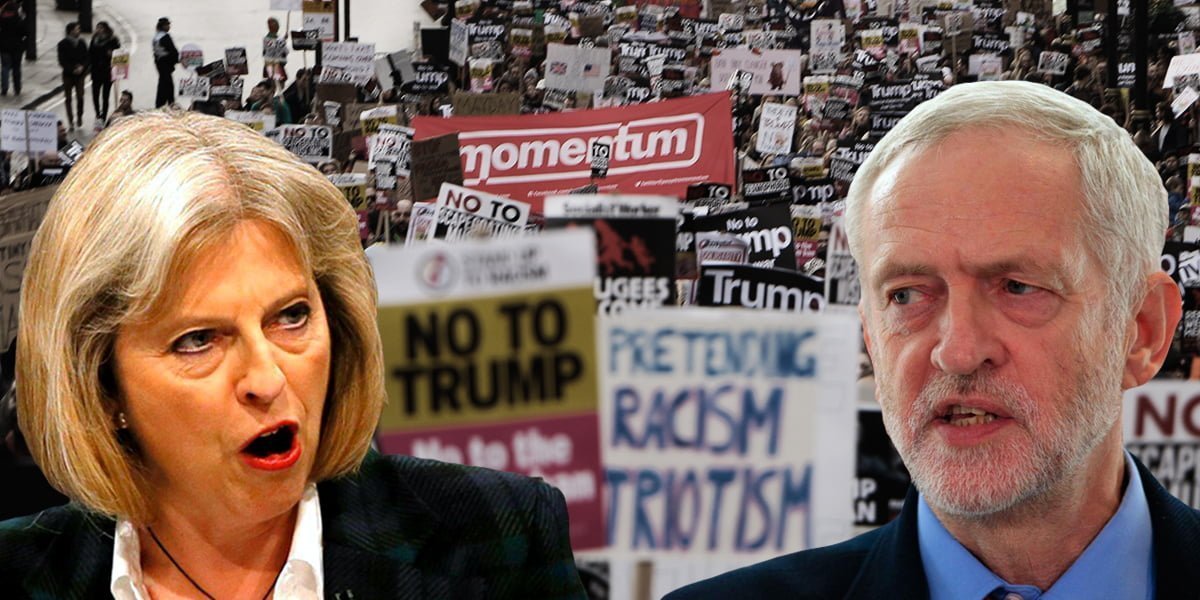
Crisis of reformism
At a certain point the scene would be set for a Left Labour government, a crisis government, that would open the way for protracted revolutionary developments. Such a government would be faced immediately with a campaign of sabotage and a strike of capital. It would face a stark choice: either move to expropriate the capitalist class or capitulate to the blackmail of big business.
This was exactly the situation that faced the Left government of Tsipras in Greece. SYRIZA was swept to power by a huge wave of popular enthusiasm. Tsipras had colossal support for the referendum he called to defy the Troika, but then capitulated and sold out the Greek masses.
Trotsky once said that that betrayal is inherent within reformism. But this does not mean that the reformist leaders deliberately set out to betray. On the contrary, they may be quite sincere. Undoubtedly Tsipras wished to carry out a policy in the interest of the Greek people. But there is a problem. If you accept capitalism, which the reformists do, then you have to accept the laws of capitalism. In an epoch of capitalist crisis, this inevitably means accepting cuts, austerity and counter-reforms. There is no other outcome on the basis of capitalism.
Every Labour government in history has faced this dilemma. However, in this deep crisis of capitalism, unlike in the past, there is no room to manoeuvre. Already the Labour leadership is simply promising reforms which do not cost anything. They blame austerity not on capitalist crisis but on “ideological cuts”, imposed by the malicious mentality of the ruling class.
Even the most left of the reformist leaders have no perspective of socialism. They are in business to “reform” capitalism, and that is all. Ironically they consider themselves to be great realists, but the threadbare programme of Keynesianism that constitutes the sum total of their wisdom is the crudest form of utopianism, particularly in the present climate. The idea that you can borrow your way out of the contradictions of capitalism is entirely false. The government will not be able to satisfy the aspirations of the masses and will only antagonise the capitalists.
The role of reformism is always to prepare the way for reaction, as the example of Hollande in France clearly shows. He was elected with a massive majority on the basis of promising reforms and opposition to austerity. Very soon he was forced to do the opposite. As a result his electoral support has been reduced to only 4%, while the right-wing Front National of Marine Le Pen is riding high.
The attempts of the reformist leaders to tinker with capitalism simply lead to frustration and disillusionment amongst the working class and a swing to the right in society. The task of the Marxists is to patiently explain the limits of the programme of reformism and the need for a root and branch transformation of society.
It cannot be theoretically ruled out that such a government, under pressure from the masses, could go further than it intended. But it will soon meet with the ferocious resistance of the bankers and capitalists. The bourgeoisie will be screaming at the government to “save the country” with vicious cuts and austerity. There will be counter-responses from the movement. The government would be ground between two heavy millstones. The fate of the Venezuelan revolution constitutes a very serious warning. It is impossible to carry out half a revolution. That will only lead to chaos.
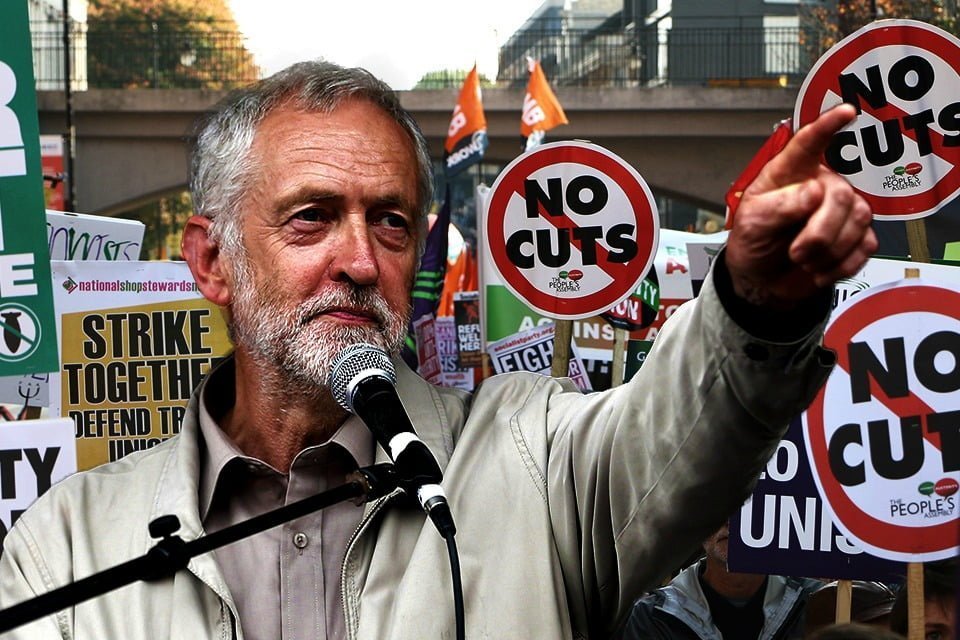
Explosive period ahead
There are some on the Left who cry “fascism” upon seeing every turn to the right. But there is a big difference between right-wing bourgeois politicians like Trump, and the kind of movements led by Hitler and Mussolini. Fascism is a special form of reaction that signifies the complete destruction of the rights and organisations of the proletariat. This is not on the cards in any advanced country.
Even in Greece, where the situation has reached a critical stage, the vicious ruling class was unable to resort to open reaction as it did in 1967 with the dictatorship of the colonels. Although the Golden Dawn, unlike the French Front National, is a genuine fascist organisation, the Greek bourgeois saw that it was too dangerous to hand power to such people. They clamped down on the party and even put its leaders in prison.
By irresponsibly shouting about Fascism every five minutes, such lefts sow confusion amongst the working class and disarm it in the face of genuine fascist threats in the future. They are behaving like the little boy who cried “wolf” too many times, and when the real wolf came there was no response.
Nevertheless, we must warn the Labour movement of what is at stake if the working class does not take power into its hands. The continuation of capitalism in a period of terminal decline will seriously endanger the democratic rights of the working class. The overthrow of the system becomes an ever-urgent task.
Under present conditions the ruling class is unable to resort to Fascism or Bonapartism. The class balance of forces is radically different to the 1930s and does not permit an immediate move in the direction of the open reaction. But over a period that can change. Bourgeois democracy is a very fragile plant that can only thrive in the soil of economic prosperity that permits the ruling class to grant serious concessions. The material basis for this is rapidly disintegrating, although the bourgeoisie can still rely on a layer of fat that it is accumulated in the previous decades. But the next period will see a sharp polarisation to the left and to the right, a period of turbulence and instability that cannot be contained within the framework of bourgeois formal democracy.
At a later date, as the capitalist crisis deepens, the capitalists will have no alternative but to move in the direction of reaction. Behind the scenes, the ruling class will be preparing for a showdown with the working class. They will say: “there are too many strikes, too many demonstrations, too much chaos. We demand order!”
However, the working class is far stronger than it was before the Second World War and has not suffered a serious defeat. In such circumstances any move towards open reaction would provoke an explosion and even civil war, which the ruling class could not be confident of winning. That is why they will think a thousand times before embarking on such a road. Long before the threat of open reaction is posed, the working class will have many opportunities to take power into its hands and transform society. Only after a series of serious defeats of the working class would the danger of reaction become a serious threat.
Trotsky referred to the molecular process of socialist revolution, a slow and gradual process that eventually reaches a critical point where quantity becomes transformed into quality. We have entered a period of revolution and counter-revolution, of sharp changes in the psychology of the masses. A slow and gradual accumulation of discontent builds up beneath the surface, unnoticed by superficial observers, until it reaches a critical point where quantity becomes transformed into quality with explosive consequences.
“Great Britain is headed for gigantic revolutionary earthquake shocks, in which the last fragments of her conservatism… will go down without a trace. MacDonald is preparing these shocks no less successfully than did Nikolai II in his time, and no less blindly,” wrote Trotsky in 1931.
Present-day events have a striking resemblance to the situation that existed in Britain in 1931, which Trotsky described as a pre-revolutionary situation. But there are also important differences. In the period from 1917 to 1939 a pre-revolutionary situation did not last long, but was quickly resolved by the victory either of revolution or counterrevolution. The process will now have a more protracted character. The crisis of British capitalism will be prolonged for a number of years, perhaps decades, before reaching a decisive conclusion.
However, the protracted nature of the situation does not mean that it is less convulsive than in the past. On the contrary, a revolutionary crisis can develop in Britain far sooner than we expect, depending partly on national and partly international developments. All the objective factors are present for explosive developments. Sooner or later they will be reflected in the consciousness of the working class.
Ted Grant used to say: “Events, events, events, will transform the situation”. In fact, events are transforming the situation before our very eyes. “The post-war political order, dominated as it has been by parties of the centre-right and centre-left, is under unprecedented strain”, explained the Financial Times. “Rising populism of the extreme left and right has begun to sound echoes of the 1930s.” (24/6/16). The strategists of capital are drawing the same conclusions as the Marxists from their class point of view.
The political representatives of the ruling class are filled with a sense of gloom and foreboding. The ruling class is already split, which is the first condition for revolution. The centre ground is disappearing fast. “Britain is starting to imitate Greece”, writes Philip Stephens in the Financial Times: “Britain’s two-party system has been under strain for some time. Now it is splintering” (FT, 30/6/16). It threatens to produce a sharp polarisation to the left and to the right of British politics.
Donald Tusk, the head of the European Council, said last year: “For me, the atmosphere is a little similar to the time after 1968 in Europe. I can feel, maybe not a revolutionary mood, but something like a widespread impatience. When impatience becomes not an individual but a social experience of feeling, this is the introduction for revolutions.”
This was meant to be a warning to the ruling classes. We should take note of what the serious strategists of capitalism say. The masses do not learn from books but from experience. The experience of capitalist crisis and the betrayals of reformism will radicalise the situation even further. It will shake society from top to bottom. The working class, beginning with its most advanced and active layers, will begin to draw revolutionary conclusions. This has already begun to happen, especially in the youth.
The Marxists must intervene in this process. “This is our point of departure”, wrote Trotsky. “The programme must express the objective tasks of the working class rather than the backwardness of workers. It must reflect society as it is, and not the backwardness of the working class… That is why we must express in our programme the whole acuteness of the social crisis of the capitalist society.” We must tell the workers the truth and with such explanations we can win the best elements to the ideas of Marxism and revolution.
We must prepare ourselves for the events that are to come. “In the present world situation, time is the most precious of raw materials”, explained Trotsky. The urgent task ahead is that of building the Marxist tendency, in Britain and internationally.
